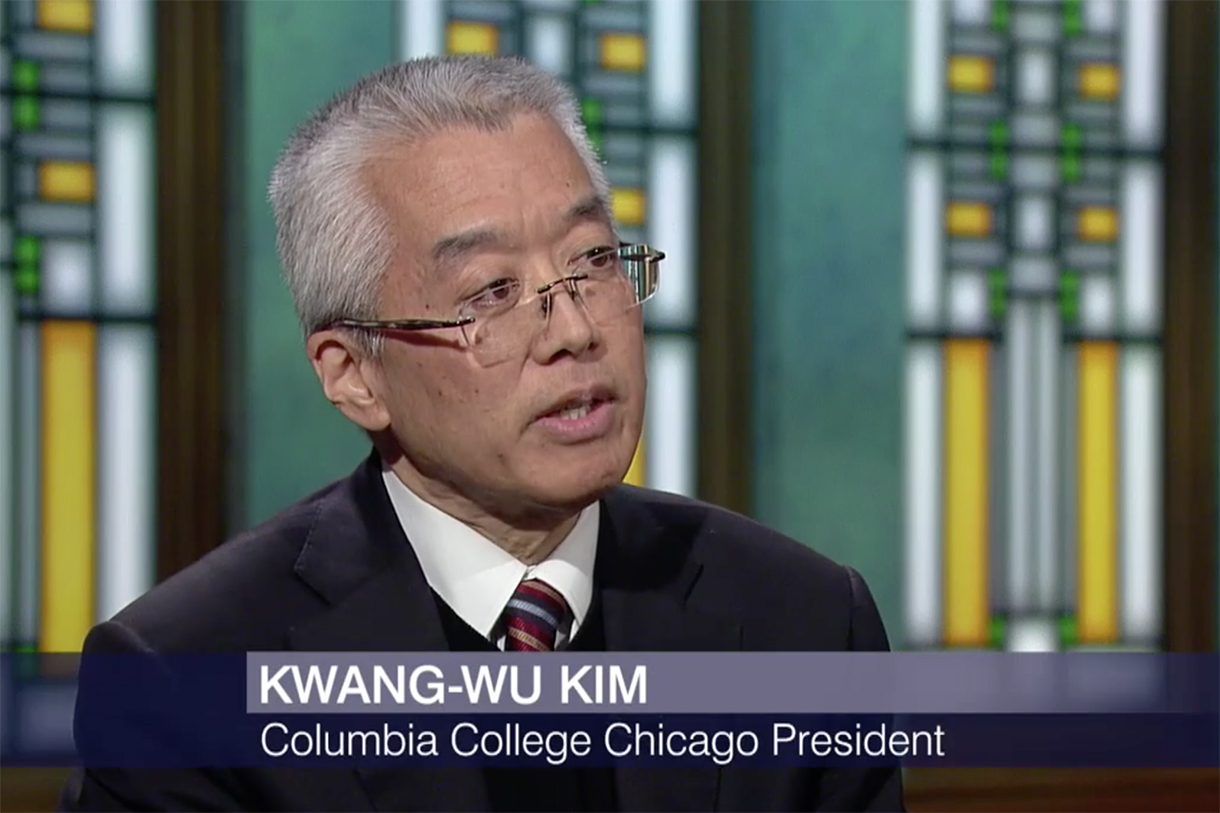Past, Present, Future: A Closer Look at Chicago Magazine's Recent Profile on Columbia
 President Kim on Chicago Tonight
President Kim on Chicago Tonight“Columbia College may be Chicago’s most overlooked big deal,” wrote author and journalist Ted C. Fishman in a nuanced and honest look at Columbia’s history and recent past in the January 2017 issue of Chicago Magazine (currently online). The story illustrates the college’s impact on Chicago and how important Columbia is to the cultural economy locally and nationally. It also illustrates how, like many other institutions of higher education, Columbia has faced external pressures, such as the Great Recession, and a more competitive higher education environment.
As the article notes, Columbia has generated some of the most accomplished and trend-setting artists and practitioners. Our faculty and alumni have made innumerable contributions to the city of Chicago and around the world. Indeed, the talent emerging from Columbia is a testament to its value. As President Kim said in a recent interview, “we exist for creatives.”
Yet, at a time when Columbia is fully engaged with itself and its community, the article’s take–that the college is experiencing an identity crisis—is at odds with the current momentum and pace of the college’s efforts through the Strategic Plan. It also adopts an alarmist position on declining enrollment and glosses over the purposeful strategy undertaken to increase retention and graduation rates. Enrollment has declined across most higher education institutions nationally. Colleges and universities in Illinois have even closed their doors in recent years. Columbia is fortunate to not be in that position, and can therefore determine its path for the future, which includes ensuring the ongoing career success of students.
President Kim sat down with Phil Ponce on Chicago Tonight (Dec. 12, 2016) to provide context and insight on these issues and more. As President Kim articulates, “We are focused very clearly on making sure that the curriculum addresses concerns [about what an arts education means]…and we believe that all of our students [can be] successful in the world.”
Chicago Magazine omits Columbia’s lauded and notable 309 full-time faculty members who rank among the top national practitioners in their respective fields and carry the most responsibility in shaping Columbia's curriculum. They are winners of MacArthur and Guggenheim fellowships; they are Fulbright scholars; and they have earned countless creative and media industry awards.
Indeed, it is difficult to capture the full picture of an institution in a single story. For the most part, Fishman certainly did a fine job in introducing interested readers to Columbia's history and to an institution absolutely vital to national and local creative industries as well as the city of Chicago. As noted:
“Columbia is a human capital generator—it creates a particular kind of innovativeness, intelligence, and skill that is useful in creative industries,’ says Lawrence Rothfield, cofounder of the Cultural Policy Center at the University of Chicago….Rothfield goes on to cite Columbia’s wider role as a common connector across all the arts and its role in keeping a critical mass of professionals and students glued to the city.”
Columbia is at another turning point in its long history. At each critical moment, Columbia always takes on those challenges, and successfully evolves to meet the needs of creatives in changing economies, in new political eras, and in new national trends.
Our story right now is an exciting one that deserves to be discussed and examined. There are many stories in the news that have been shared and still more to come. For more on the dynamic, important work being created by Columbia’s faculty, staff and students, visit our News and Events page, attend one of the many events on or off-campus, explore our award-winning alumni magazine DEMO, learn about our innovative programs, and most importantly, stay tuned.